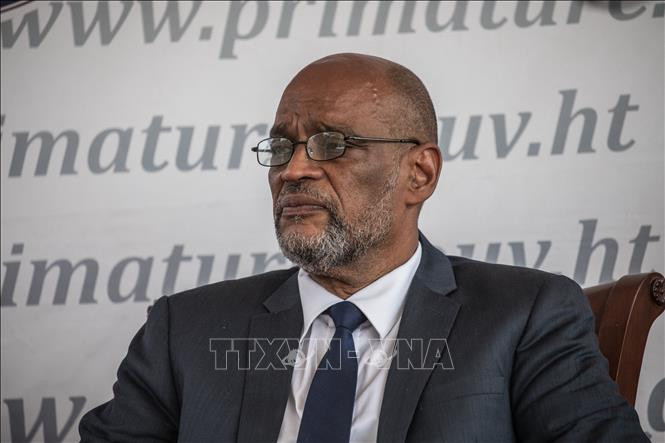The newly formed transitional council will appoint an interim prime minister and a cabinet, sign decrees and establish an interim electoral council tasked with paving the way for Haiti's first elections since 2016.

According to AFP news agency, on the morning of March 12 (Vietnam time), President of the Caribbean Community (CARICOM) Irfaan Ali confirmed that Haitian Prime Minister Ariel Henry has resigned as head of government of the Caribbean nation. After this move, Haiti will establish a transitional council, exercising specific presidential powers through voting.
Ariel Henry was in Puerto Rico, a US territory, on March 11 after being unable to return to Haiti after a visit to Kenya to seek support during the recent outbreak of violence, a US official said.
Henry's resignation announcement came after regional leaders held an emergency meeting in Jamaica to discuss ways to defuse the unrest in the island nation. In addition to CARICOM leaders, the meeting was attended by special envoys from the United States, France, Canada and the United Nations.
A US official said Henry's decision to resign was made on March 8. However, it was not until the evening of March 11 that the leader officially submitted the decision to the cabinet and then announced it to the public via video.
After Prime Minister Henry traveled to Kenya in late February to rally support for an international security mission to crack down on Haiti's powerful armed gangs, violence escalated in the capital, with widespread protests calling for Henry's resignation. He has been in power since the assassination of President Jovenel Moise in 2021.
According to foreign news agencies, late on March 8, heavy gunfire rang out near the capital's National Palace. For several days, armed gangs had caused chaos, allowing thousands of prisoners to escape, forcing the capital's main cargo port to close and the government to declare a state of emergency.
Referring to the transitional council, the CARICOM chair said it would include two observers and seven voting members representing various sectors of Haitian society. Although no individuals have been named to the council, CARICOM said the two non-voting observer roles would go to a religious leader and a representative of Haitian civil society. The seven voting members would come from Haiti’s business sector and political parties or coalitions, including the Fanmi Lavalas party led by 70-year-old former President Jean-Bertrand Aristide, the Pitit Dessalines party led by former Senator Jean-Charles Moise, and the Development Commitment (EDE) party led by former Prime Minister Claude Joseph.
The council will appoint an interim prime minister and a cabinet, sign decrees and establish an interim electoral council tasked with paving the way for Haiti's first elections since 2016.
Anyone convicted, charged or on a UN sanctions list, as well as anyone who opposes a UN resolution deploying security forces to Haiti or intends to run in future elections, will be barred from membership in the council.
CARICOM has not given a specific date for the formation of the transitional council or the electoral council, despite regional leaders urging security to be established before the vote.